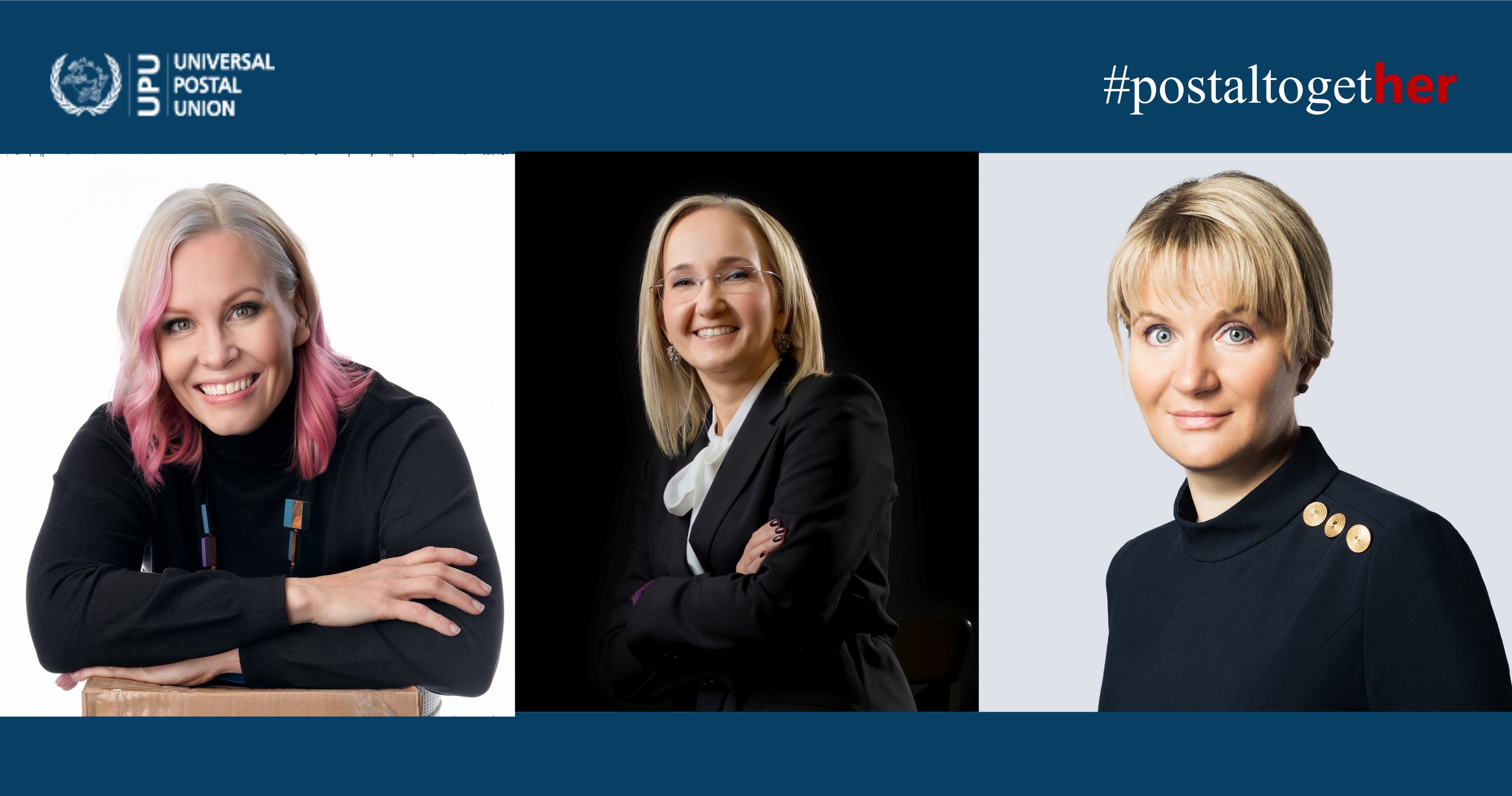It is well known that the postal industry is undergoing wide scale transformation to embrace the digital world.
But what may be less well-publicised is the industry’s transformation from a male-dominated sector to one that promotes women into leading management positions to take on some of the greatest challenges ever faced by posts.
Today, operators around the world are either led by women or have women on the management board. CEOs include Australia Post’s Christine Holgate, PostNL’s Herna Verhagen, and Lietuvos paštas’s Asta Sungailienė, to name a few.
To mark International Women’s Day on Monday, March 8, the Universal Postal Union spoke to female postal sector executives to find out about their experiences of working in the industry. The resounding feedback was that in general, the industry is a fair and equal place to work, regardless of gender.
Andreja Bekavac, head of strategy and business development at Hrvatska Pošta (Croatian Post), said, “Croatian Post hires an equal number of male and female workers, from operational to senior management roles. We are paid according to role, not gender. As a woman, I have never felt discriminated against, either negatively or positively. Overall, we strive to be a society that views individuals through their competencies rather than gender characteristics. In my business environment, the most important thing for me is that I feel competent and purposeful.”
Kati Packalén, head of customer experience at PostNord Finland, shares the same experience as Bekavac. She commented, “Logistics has been traditionally seen as very male-dominant industry and it was exactly that 10 years ago when I first started in the sector. There were very few women, especially in leading managerial positions. Since then this has changed dramatically. I personally have never felt any kind of pressure or difficulty working within this industry.”
According to Packalén, at PostNord gender equality has been raised as one of the company’s sustainability goals. In addition, the organization has adopted a Diversity Policy which is based on the PostNord Code of Conduct and is coordinated with the sections concerning human rights in the UN’s Global Compact. “More specifically there is a target of 40 per cent female employees within the company, and with top leadership positions the target is to have 35 per cent females,” Packalén adds.
At Russian Post, approximately 80 per cent of employees are women, according to Julia Leschevskaya, first deputy chairman of the management board, deputy general director, and executive director. “At Russian Post, we have established mandatory requirements for the representation of women in governing bodies. In addition, we are considering the possibility of introducing the UN Sustainable Development Goals in the company, which include ensuring gender equality. For me, being a female employee in the postal industry means taking a special responsibility toward clients. As a leader, I always put the improvement of the quality of service first.”
Today, operators around the world are either led by women or have women on the management board. CEOs include Australia Post’s Christine Holgate, PostNL’s Herna Verhagen, and Lietuvos paštas’s Asta Sungailienė, to name a few.
To mark International Women’s Day on Monday, March 8, the Universal Postal Union spoke to female postal sector executives to find out about their experiences of working in the industry. The resounding feedback was that in general, the industry is a fair and equal place to work, regardless of gender.
Andreja Bekavac, head of strategy and business development at Hrvatska Pošta (Croatian Post), said, “Croatian Post hires an equal number of male and female workers, from operational to senior management roles. We are paid according to role, not gender. As a woman, I have never felt discriminated against, either negatively or positively. Overall, we strive to be a society that views individuals through their competencies rather than gender characteristics. In my business environment, the most important thing for me is that I feel competent and purposeful.”
Kati Packalén, head of customer experience at PostNord Finland, shares the same experience as Bekavac. She commented, “Logistics has been traditionally seen as very male-dominant industry and it was exactly that 10 years ago when I first started in the sector. There were very few women, especially in leading managerial positions. Since then this has changed dramatically. I personally have never felt any kind of pressure or difficulty working within this industry.”
According to Packalén, at PostNord gender equality has been raised as one of the company’s sustainability goals. In addition, the organization has adopted a Diversity Policy which is based on the PostNord Code of Conduct and is coordinated with the sections concerning human rights in the UN’s Global Compact. “More specifically there is a target of 40 per cent female employees within the company, and with top leadership positions the target is to have 35 per cent females,” Packalén adds.
At Russian Post, approximately 80 per cent of employees are women, according to Julia Leschevskaya, first deputy chairman of the management board, deputy general director, and executive director. “At Russian Post, we have established mandatory requirements for the representation of women in governing bodies. In addition, we are considering the possibility of introducing the UN Sustainable Development Goals in the company, which include ensuring gender equality. For me, being a female employee in the postal industry means taking a special responsibility toward clients. As a leader, I always put the improvement of the quality of service first.”
